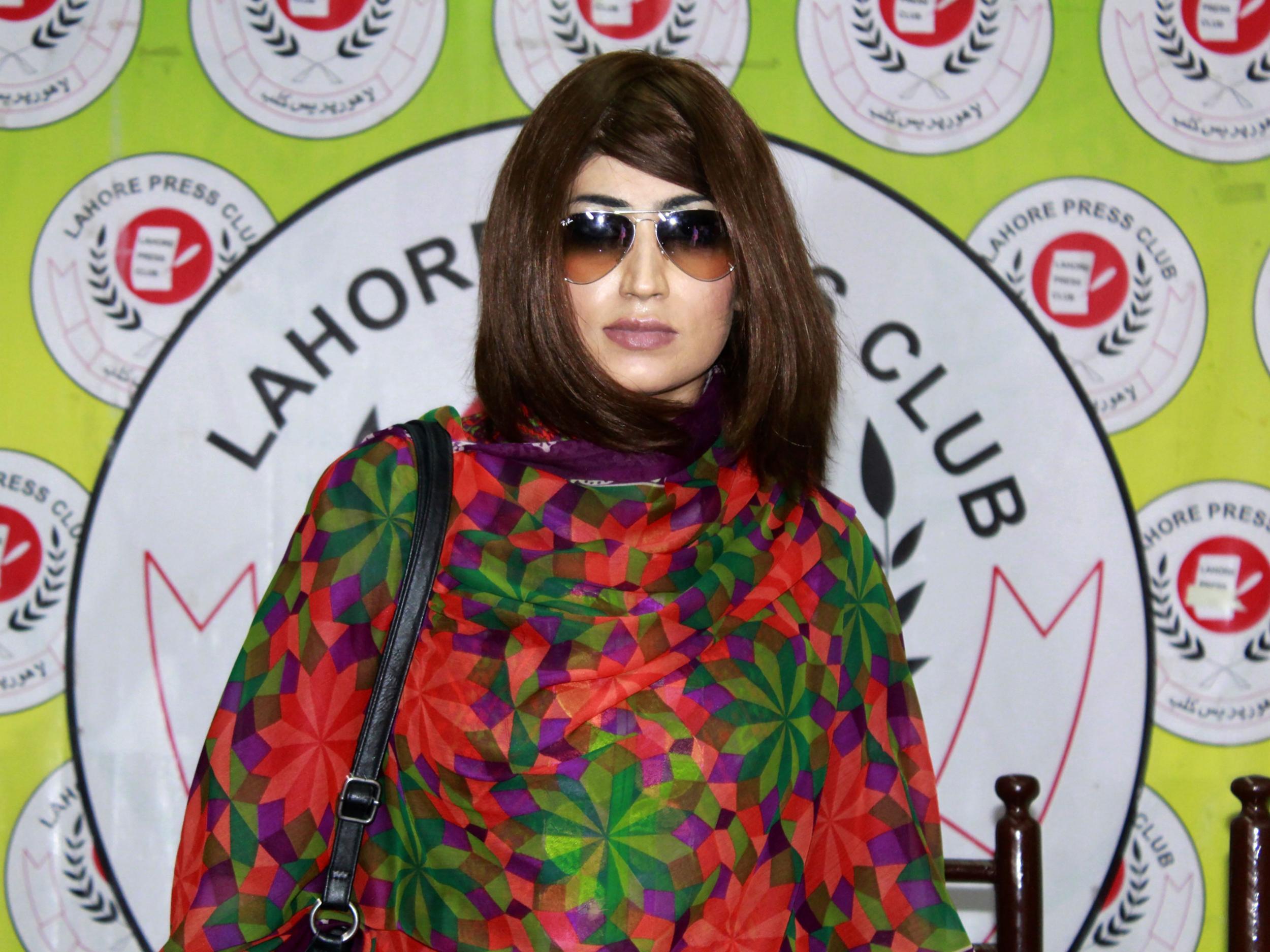When you call the murder of Qandeel Baloch an 'honour killing', you perpetuate the ideas that led to her death
I'm half-Indian and half-Pakistani – and I know how men in the community think their actions are justified because they bring back 'honour' to the family

Qandeel Baloch was like any other 26-year-old woman. Confident, courageous and ambitious model and actress Qandeel strove to be outspoken in her native Pakistan and refused to accept that her behaviour should be policed by default – but this progressive perspective would ultimately cost her her life. Her death hit the headlines this week when her own brother proudly admitted drugging and strangling her because he felt she was damaging her family’s reputation with her controversial social media posts expressing her sexuality in sometimes risqué ways that angered religious conservatives. Unsurprisingly, Qandeel’s brother showed no shame at all for his actions, for he believed his honour – and the honour of his family – was still intact. The press referred to it as an “honour killing”.
I have always considered the term “honour killing” an oxymoron.
How can something as senseless, violent and unjustified as premeditated murder be in any way honourable? The term in itself almost defies comprehension in any right-thinking mind, yet society continues to give importance to its reluctant definition.
So-called “honour killings” are a primitive practice fostered in patriarchal societies, where women and girls are subjected to extreme domestic violence, abuse and, in particularly heinous cases, death due to the flawed perception that their actions have brought “shame” upon their family. Rooted in male privilege and a woman’s subordinate social status, honour killings are incredibly prevalent in countries within South Asia and the Middle East, where thousands become victims each year.
Cases are usually committed by family members close to the victim, giving weight to the claim that by taking matters into their own hands, these families have restored the honour they have lost – a concept which is as ridiculous as it sounds. How can murder be anything other than dishonourable? I for one refuse to dignify it with any term that makes it sound any more accepting, and I feel as if by continuously referring to them as such, we are justifying and legitimising the murders and accepting the climate that allows chauvinistic and patriarchal mentalities to breed. Why do we accept so-called “honour killings” as part of another culture or tradition? Is murder not just murder?

Being half-Indian and half-Pakistani myself, although born and bred in Britain, I’m lucky to have a supportive family who would never put me through the same, for they do not perceive women through a window glazed with deep-rooted misogyny – but not every girl is as lucky, and in both countries of my heritage, women are being killed in their thousands. Each incident makes me feel sick to my stomach.
According to the Honour Based Violence Awareness Network, 12 women per year are killed in the UK for the sake of “honour” but the number of attacks and attempted murders is thought to be much higher, with almost 11,000 cases of violence being reported between the years of 2010 and 2014.
Throughout the years, I have heard of numerous cases within the community of girls being either forced into marriage, or pressured into submission and letting go of their ambitions because of threats from their families. There are women who have been raped, abused or attacked who have effectively been prohibited to speak out. When did honour become more important than a life? It should also be noted that although predominately a gender-based issue, a small minority of men are also subject to this violence.
The world has failed women like Qandeel, and the thousands of others who are named as case files alongside her. Women should be entitled to live free, fulfilled lives, safe from the threats of violence and false morality. Whether they bend to the rules of a culture or not, surely we can come to an agreement that nobody has the right to kill them.
A life should never be worth less than honour. Preventing another case like Qandeel Baloch’s might be difficult – but we can start by calling these misogynistic murders “honour killings”.
Join our commenting forum
Join thought-provoking conversations, follow other Independent readers and see their replies
Comments
Bookmark popover
Removed from bookmarks